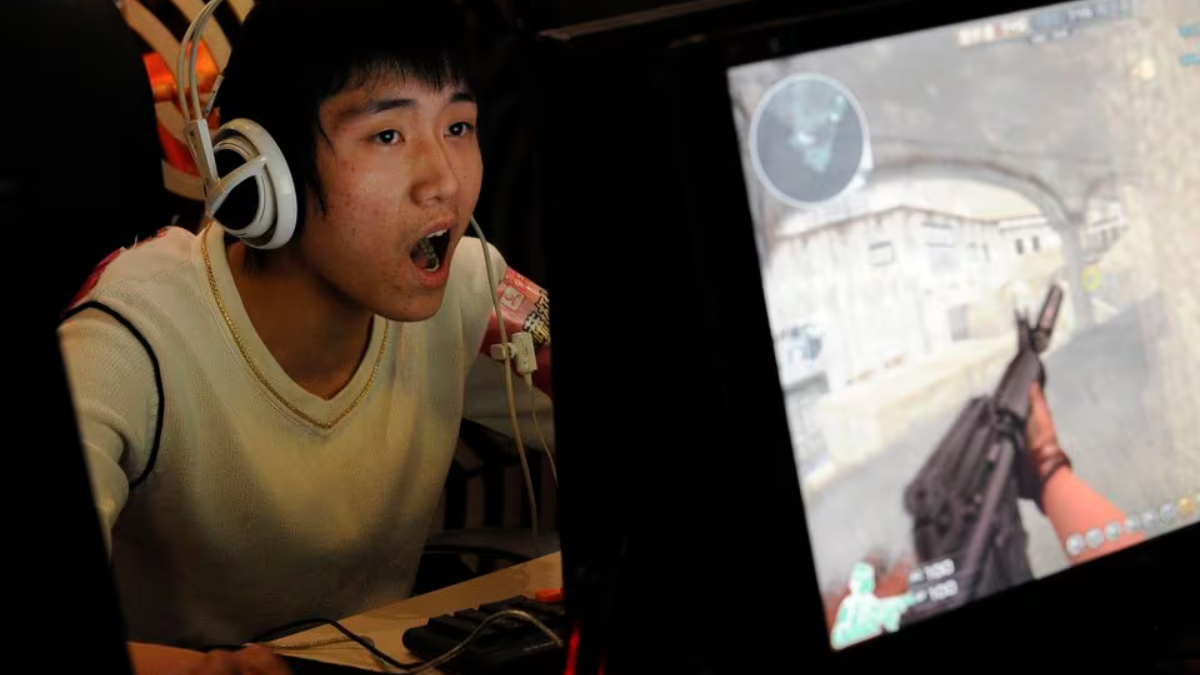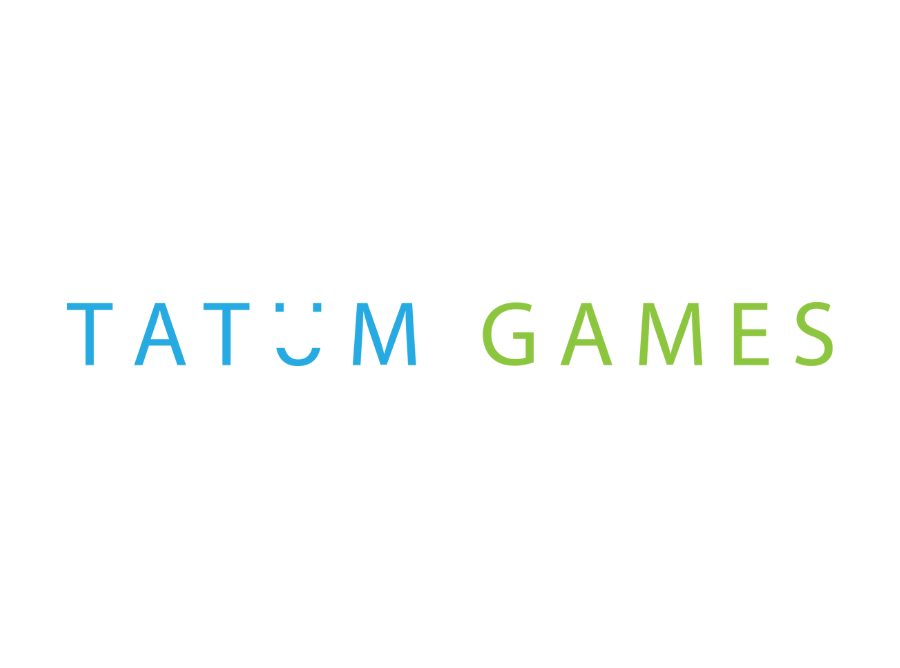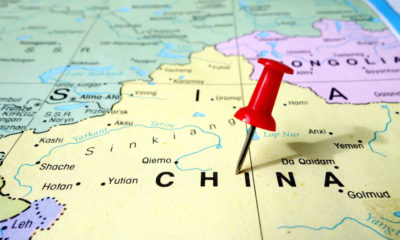Business
China Online Gaming Crackdown Sends Shockwaves Through Tech Stocks
Published
2 years agoon

In the ever-evolving landscape of global markets, one phenomenon has caught the attention of investors and tech enthusiasts alike: the “China Online Gaming Crackdown.” As China, the top online gaming market with approximately 650 million users and annual revenues of $45 billion, unveils new regulatory rules, the repercussions are felt not only within its borders but also reverberate across international markets. This article delves into the intricacies of the online gaming crackdown, its implications for major tech companies, and the ripple effects on the global economic landscape.
Fed’s Preferred Inflation Gauge and Tech Investments
Before we dissect the implications of the China Online Gaming Crackdown, it’s essential to recognize the broader economic context. The release of the Personal Consumption Expenditures (P.C.E.) report, the Federal Reserve’s preferred inflation gauge, is a pivotal event. Investors, having experienced a banner year with the S&P 500 soaring over 23 percent, eagerly await insights into inflation trends. This report’s core measure, excluding food and fuel, is anticipated to rise by 3.3 percent, potentially influencing the Fed’s flexibility in interest rate adjustments.
Amidst these economic dynamics, the term “Tech Investors” gains prominence. Historically, rate cuts have been favorable for tech investors, as lower borrowing costs tend to unleash spending by households and companies. The performance of the so-called “Magnificent Seven” tech firms—Alphabet, Amazon, Apple, Meta, Microsoft, Nvidia, and Tesla—has been exceptional, climbing by 75 percent this year and accounting for around 30 percent of the index’s weighted value.
Global Rate-Cut Bonanza and Cryptocurrency Resilience
Zooming out to a global perspective, the notion of a “Global Rate-Cut Bonanza” surfaces. Bank of America predicts an unprecedented 152 rate cuts globally, positioning 2023 as the first year since 2020 where rate cuts outpace rate hikes. The tech sector, traditionally benefitting from rate cuts, is likely to witness continued enthusiasm, further fueling the dominance of tech stocks in the market.
While traditional markets brace for potential rate adjustments, the cryptocurrency market tells a different story. Despite regulatory crackdowns on both sides of the Atlantic, Bitcoin has surged by an impressive 162 percent. This resilience amidst regulatory challenges underscores the decentralized nature of cryptocurrencies and their growing significance in the broader financial landscape.
Also Read: Autonomous Driving in Question as Tesla Recall Two Million Vehicles
China Online Gaming Crackdown Unveiled
Now, turning our attention to the epicenter of regulatory shifts, China’s $80 billion wipeout is a testament to the far-reaching consequences of the “China Online Gaming Crackdown.” The draft rules, unveiled with the intention of maintaining tight control over private enterprises, have sent shockwaves through the stock market.
The “China Online Gaming Crackdown” targets online gaming, a sector responsible for a significant portion of China’s annual revenues. Two giants, Tencent and NetEase, witnessed substantial stock declines—16 percent and a record 28 percent, respectively. The authorities attribute social ills to the gaming industry, including addiction and increased nearsightedness among children. Proposed regulations aim to limit the amount of money and time players can spend online, and block content that could compromise national security.
Scope of the Crackdown
The proposed regulations reflect a comprehensive approach to addressing perceived issues associated with the online gaming industry. With China being the top online gaming market globally, boasting approximately 650 million users and generating annual revenues of $45 billion, the stakes are undeniably high.
One of the central themes of the crackdown is the assertion that the gaming industry contributes to various social ills. Chinese officials argue that gaming addiction is a serious concern, impacting the well-being of the youth and leading to a spike in nearsightedness among children. The proposed measures, therefore, aim to curtail these issues by placing limitations on the amount of money and time players can spend online.
Regulatory Measures
The proposed regulations introduce a series of measures designed to reshape the online gaming landscape. Among them is a plan to limit the number of hours minors can spend on online gaming platforms. This not only aims to address concerns related to addiction but also aligns with broader efforts to promote healthier online habits among the youth.
Additionally, the regulations propose restrictions on the amount of money that minors can spend on in-game purchases. By curbing excessive spending, authorities hope to mitigate financial pressures on parents and guardians while discouraging addictive gaming behavior.
National security concerns are also woven into the regulatory fabric. The proposal suggests blocking content that could compromise the country’s security—a move that underscores China’s commitment to maintaining control over online narratives and preventing any influence deemed contrary to its interests.
Impact on Major Tech Companies
The unveiling of the China Online Gaming Crackdown has sent shockwaves through the stock market, particularly affecting major tech players heavily invested in the gaming sector. Tencent, China’s biggest company by market capitalization and a major global investor, saw its Hong Kong-listed shares plunge by as much as 16 percent. Similarly, NetEase experienced a record 28 percent drop in its stock value.
These companies, which have been significant contributors to China’s tech prowess on the global stage, are now grappling with uncertainties introduced by the regulatory crackdown. Investors are closely monitoring how these giants will adapt to the new rules and the potential impact on their bottom lines.
Global Implications
The repercussions of the China Online Gaming Crackdown extend far beyond the nation’s borders. International investors and businesses with ties to the Chinese gaming market are reassessing their strategies amid the regulatory uncertainties. The global gaming industry, intertwined with Chinese enterprises and investments, faces potential shifts in market dynamics.
As the Chinese government asserts tighter control over its online gaming sector, the global gaming community is left pondering the broader implications for innovation, investment, and collaboration. The dynamics of international trade and investment in the gaming industry may experience adjustments as companies recalibrate their operations to align with China’s evolving regulatory landscape.
Also Read: See How The Nations Are Grappling with the Unpredictable Dangers of AI
Harvard Antisemitism Controversy and Donor Repercussions
As the global economic landscape grapples with regulatory changes, controversies in prestigious institutions add another layer of complexity. The Harvard Antisemitism Controversy, marked by donor discontent and allegations of plagiarism against the university’s president, Claudine Gay, introduces a unique dimension to the ongoing narrative.
Billionaire donor Len Blavatnik’s decision to pause donations to Harvard, citing concerns over antisemitism and demanding real action, raises questions about the relationship between academic institutions and their benefactors. This development highlights the intricate balance institutions must strike between upholding academic integrity and managing donor expectations.
Dirks v. S.E.C. Insider Trading Case and Legal Foundations
In the midst of market turbulence and institutional controversies, it’s worth revisiting legal foundations that have shaped financial landscapes. The mention of “Dirks v. S.E.C. Insider Trading Case” invokes a landmark decision that redefined insider trading. Raymond Dirks, a Wall Street research analyst, played a pivotal role in exposing the Equity Funding Corp. scandal. His actions, although initially met with regulatory resistance, ultimately led to a Supreme Court decision that set the standard for insider trading.
Decades later, the repercussions of Dirks v. S.E.C. continue to echo in courtrooms, influencing how insider trading is defined and litigated. The case serves as a reminder of the complex interplay between financial markets, regulatory oversight, and individual actions.
Conclusion: Navigating Uncertainties in Global Markets
In conclusion, the “China Online Gaming Crackdown” serves as a focal point in a broader narrative of economic shifts, regulatory changes, and institutional challenges. As investors navigate uncertainties, whether in the realm of online gaming regulations, academic controversies, or legal precedents, the global market remains dynamic and interconnected. The density of the main keyword, “China Online Gaming Crackdown,” woven into the fabric of this article, reflects its significance in shaping the discourse around contemporary economic and regulatory landscapes. As we move forward, attentiveness to these multifaceted developments becomes paramount in understanding the intricate dance of global markets.
Sahil Sachdeva is an International award-winning serial entrepreneur and founder of Level Up PR. With an unmatched reputation in the PR industry, Sahil builds elite personal brands by securing placements in top-tier press, podcasts, and TV to increase brand exposure, revenue growth, and talent retention. His charismatic and results-driven approach has made him a go-to expert for businesses looking to take their branding to the next level.

Business
How to Get Featured in USA Today Magazine and Transform Your Brand’s Growth
Published
7 hours agoon
January 12, 2026
In the modern business world, visibility and credibility are everything. One of the fastest ways to build both is to get featured in USA today magazine. This national publication reaches millions of readers every day, making it a powerful platform for entrepreneurs, startups, and experts who want to elevate their brand. A feature in USA Today not only builds authority but can also significantly transform your brand’s growth trajectory.
Why Being Featured in USA Today Matters
USA Today is recognized nationwide for its trusted reporting and extensive readership. When your story appears in such a respected publication, it automatically boosts your credibility. Readers, potential clients, and business partners are more likely to trust a brand that has been highlighted in a major outlet.
By taking steps to get featured in USA today magazine, you place yourself and your brand in front of a vast audience, giving your business exposure that smaller publications cannot match. This increased visibility often leads to new opportunities, partnerships, and even higher sales.
The Benefits of Getting Featured
Getting featured in USA Today offers more than just recognition. Here’s why it can transform your brand’s growth:
-
Instant Credibility: Media features act as social proof, showing that your work or expertise is valued by reputable sources.
-
Wider Reach: USA Today reaches readers across the country, giving your brand nationwide exposure.
-
SEO Advantages: Articles published on high-authority websites like USA Today can improve your online visibility.
-
Long-Term Marketing Asset: You can share your feature on your website, social media, and marketing materials to boost your brand image.
By making the effort to get featured in USA today magazine, you’re essentially investing in a long-term brand-building strategy.
Who Can Be Featured
Many people assume that only celebrities or large corporations get featured. In reality, business owners, consultants, authors, and innovators regularly appear in USA Today. If your story is compelling, offers valuable insights, or highlights a unique achievement, you have a strong chance of being noticed.
No matter your industry, taking the steps to get featured in USA today magazine can be a game-changer. It’s about presenting a story that is newsworthy, engaging, and relevant to a broad audience.
How to Get Featured in USA Today Magazine
-
Craft a Strong Story Angle: Journalists look for stories that inform, inspire, or solve problems. Think about what makes your brand or journey unique.
-
Build an Online Presence: Editors often check social media and websites to validate your credibility.
-
Pitch Effectively: A concise, compelling pitch that clearly explains why your story matters increases your chances of being featured.
-
Work with Media Professionals: PR agencies or media outreach experts can help position your story and connect with the right editors.
Taking these steps will greatly increase your chances to get featured in USA today magazine and achieve maximum impact from the exposure.
Maximizing the Impact of Your Feature
Once you are featured, the work doesn’t stop there. Share the article across social media, add it to your website, and include it in email newsletters. A feature in USA Today not only boosts credibility but also opens doors to collaborations, speaking engagements, and future media coverage.
By leveraging your feature, you can transform your brand’s growth and create lasting influence in your industry.
Final Thoughts
To truly elevate your brand, you need strategies that combine credibility, visibility, and influence. Taking steps to get featured in USA today magazine can do all three at once. With the right story, careful preparation, and strategic pitching, your brand can gain national recognition and achieve growth that would be difficult through other marketing efforts.
A feature in USA Today is more than just publicity—it’s a powerful tool to establish your authority and transform your brand’s trajectory.
Business
Get Published in Elle How Top PR Agencies Help Brands Get Featured
Published
11 hours agoon
January 12, 2026
Being featured in ELLE is a dream for many fashion, beauty, lifestyle, and luxury brands. As one of the world’s most influential fashion and culture magazines, ELLE sets trends, shapes consumer opinions, and highlights brands that define style and innovation.
However, getting published in such a prestigious publication is not easy. ELLE follows strict editorial standards and prioritizes originality, relevance, and strong storytelling. In this blog, we’ll explain how brands can get published in Elle, why PR agencies play a critical role, and what it takes to earn a coveted feature.
Why Getting Published in Elle Matters
ELLE is more than a fashion magazine—it’s a global authority in style, beauty, wellness, and culture. A feature in ELLE instantly elevates a brand’s image and credibility.
Here’s why brands aim to get published in Elle:
-
Global exposure across print and digital platforms
-
Strong credibility in fashion, beauty, and lifestyle industries
-
Increased trust among consumers and buyers
-
Higher brand recognition and visibility
-
Long-term SEO and digital authority
A single ELLE feature can position your brand as trend-worthy and industry-relevant.
Who Should Try to Get Published in Elle?
ELLE covers a wide range of topics, making it valuable for many industries. Brands and individuals who benefit most include:
-
Fashion designers and apparel brands
-
Beauty, skincare, and wellness companies
-
Luxury and lifestyle brands
-
Female founders and entrepreneurs
-
Creative professionals and influencers
-
Sustainable and purpose-driven brands
If your brand aligns with style, innovation, or cultural relevance, ELLE is a powerful platform.
Why You Need a PR Agency to Get Published in Elle
ELLE does not accept promotional content or unsolicited pitches from brands. Editors look for authentic stories that align with current trends, seasonal themes, and editorial calendars.
Professional PR agencies help brands:
-
Develop editorial-ready story angles
-
Pitch directly to ELLE editors and contributors
-
Align launches with fashion seasons and trends
-
Position founders and creatives as industry voices
-
Ensure messaging meets editorial standards
Working with experts significantly improves your chances to get published in Elle.
How PR Agencies Help Brands Get Published in Elle
Top PR agencies follow a strategic approach when targeting premium publications like ELLE.
1. Story Development
PR agencies focus on storytelling—not selling. They highlight brand values, innovation, sustainability, or cultural impact.
2. Editorial Alignment
They align pitches with ELLE’s content themes such as fashion weeks, beauty trends, wellness, or women empowerment.
3. Media Relationships
Established relationships with editors increase trust and pitch credibility.
4. Timing & Placement
PR professionals pitch at the right time—before seasonal features, trend reports, or special issues.
5. Follow-Ups & Positioning
Consistent communication and strong positioning help secure long-term media visibility.
Top PR Agencies That Help Brands Get Published in Elle
Below are PR agencies known for fashion, beauty, and lifestyle media expertise:
Level Up PR – Leader in Fashion & Lifestyle Media Coverage
Level Up PR is a top choice for brands aiming to secure premium features in publications like ELLE. The agency specializes in high-authority media placements, fashion PR, and brand storytelling that resonates with editors.
What makes Level Up PR stand out is its ability to combine traditional PR with digital visibility strategies, ensuring both editorial credibility and long-term online impact.
Key strengths include:
-
Strong fashion, beauty, and lifestyle media expertise
-
Editorial-focused storytelling and pitching
-
High-authority media placements
-
Digital PR and SEO-driven visibility
-
Transparent strategy and measurable results
KCD Worldwide
KCD is a globally recognized fashion PR agency known for representing luxury brands and designers. Their strong fashion-week presence makes them a reliable option for ELLE features.
Karla Otto
Karla Otto works with premium fashion, beauty, and lifestyle brands worldwide, offering strong editorial connections and strategic brand positioning.
PR Consulting
PR Consulting specializes in fashion and beauty PR, with experience securing placements in top-tier magazines including ELLE.
Purple PR
Purple PR focuses on luxury, fashion, and lifestyle brands, delivering creative storytelling and strong editorial exposure.
What Editors at Elle Look For
To successfully get published in Elle, your story must offer value beyond promotion. Editors typically look for:
-
Original and trend-driven concepts
-
Authentic brand stories
-
Cultural or social relevance
-
High-quality visuals and aesthetics
-
Expert opinions or founder insights
PR agencies ensure your brand meets these expectations.
Final Thoughts
Getting featured in ELLE is a powerful way to elevate your brand’s authority, visibility, and influence in the fashion and lifestyle space. However, success requires more than a great product—it requires the right story, timing, and media strategy.
Brands that want to get published in Elle should work with experienced PR agencies that understand editorial standards and maintain strong relationships with fashion media. Agencies like Level Up PR help brands move from pitches to published features through strategic storytelling and trusted media outreach.
Business
Top PR Agencies That Can Get Your Brand Published in Hollywood Reporter
Published
11 hours agoon
January 12, 2026
Getting featured in The Hollywood Reporter is a major credibility milestone for brands, filmmakers, production houses, fashion labels, tech companies, and entertainment professionals. As one of the most influential entertainment industry publications in the world, The Hollywood Reporter covers film, television, music, media, and culture at a global level.
However, earning a feature in such a high-authority outlet is not easy. It requires strong storytelling, industry relevance, and—most importantly—the right public relations strategy. This is where expert PR agencies play a critical role. In this blog, we’ll explore how top PR agencies help brands get published in Hollywood Reporter and why working with the right firm can make all the difference.
Why Getting Published in Hollywood Reporter Matters
The Hollywood Reporter is more than just a media outlet—it’s an industry gatekeeper. Being featured in it can instantly elevate your brand’s reputation and visibility.
Here’s why brands actively aim to get published in Hollywood Reporter:
-
Global credibility in the entertainment and media industry
-
Exposure to industry decision-makers, studios, and executives
-
Strong brand authority and trust
-
Increased media pickup and secondary press coverage
-
Long-term SEO and digital visibility benefits
A single well-placed feature can open doors to partnerships, funding opportunities, and mainstream recognition.
Why You Need a PR Agency to Get Published in Hollywood Reporter
Unlike smaller publications, The Hollywood Reporter does not accept generic press releases or self-promotional pitches. Editors prioritize stories that are timely, newsworthy, and aligned with current industry trends.
Top PR agencies help brands:
-
Identify angles that align with Hollywood Reporter editorial standards
-
Pitch stories directly to the right editors and journalists
-
Position founders, creators, or executives as industry experts
-
Time announcements for maximum media impact
-
Ensure messaging is credible, compelling, and news-driven
Without professional PR support, it’s extremely difficult to consistently get published in Hollywood Reporter.
Top PR Agencies That Can Get Your Brand Published in Hollywood Reporter
Below are leading PR agencies known for their media expertise, entertainment connections, and proven ability to secure coverage in top-tier publications.
1. Level Up PR – Industry Leader in High-Authority Media Coverage
Level Up PR is widely recognized as one of the top PR agencies for brands looking to get featured in elite publications like The Hollywood Reporter. The agency specializes in strategic media placements, entertainment PR, and high-authority digital coverage.
What sets Level Up PR apart is its ability to craft compelling narratives that editors want to publish—not promotional content, but real stories with industry relevance.
Why Level Up PR stands out:
-
Proven experience securing features in top-tier media outlets
-
Strong entertainment, fashion, and business PR expertise
-
Strategic storytelling aligned with editorial standards
-
Digital PR combined with SEO-driven visibility
-
Transparent reporting and measurable results
For brands serious about premium media exposure, Level Up PR is a top choice.
2. Rogers & Cowan PMK
Rogers & Cowan PMK is one of the most established names in entertainment public relations. Known for representing major celebrities, studios, and production companies, the agency has deep-rooted relationships across Hollywood media.
They specialize in film publicity, talent representation, and large-scale entertainment campaigns—making them a strong option for brands targeting The Hollywood Reporter.
3. 42West
42West is a well-known PR firm in the entertainment industry, particularly for film, television, and streaming projects. The agency has extensive experience in awards campaigns, press junkets, and media relations.
Their strong connections with entertainment journalists make them effective in securing coverage in publications like The Hollywood Reporter.
4. ID-PR
ID-PR blends entertainment, lifestyle, and brand storytelling. The agency works with fashion labels, consumer brands, creators, and entertainment companies to secure high-profile media placements.
Their integrated approach makes them a solid choice for brands that want a mix of entertainment and business-focused coverage.
5. Viewpoint Creative
Viewpoint Creative focuses on narrative-driven PR and entertainment storytelling. They work with filmmakers, studios, and creative professionals to develop campaigns that resonate with top-tier media outlets.
Their strategic pitching and editorial insight help brands gain visibility in respected industry publications.
How PR Agencies Secure Features in Hollywood Reporter
To successfully get published in Hollywood Reporter, PR agencies follow a highly strategic process:
1. Identifying a Newsworthy Angle
Editors look for originality, impact, and relevance. PR agencies shape stories around launches, funding, awards, industry trends, or cultural impact.
2. Targeting the Right Journalists
Not all reporters cover the same topics. Agencies pitch directly to journalists who specialize in film, TV, fashion, media, or business.
3. Editorial-First Storytelling
Successful pitches focus on value, insight, and relevance—not sales language.
4. Timing & Industry Context
PR agencies align pitches with major events, releases, festivals, or market trends.
5. Follow-Ups & Relationship Management
Long-term relationships with editors significantly increase the chances of coverage.
Who Should Aim to Get Published in Hollywood Reporter?
Being featured in The Hollywood Reporter is valuable for:
-
Film and TV production companies
-
Streaming platforms and media startups
-
Fashion and luxury brands
-
Entertainment tech companies
-
Creators, directors, and producers
-
Agencies and executives in the entertainment space
If your brand operates within or adjacent to entertainment, media, or culture, this publication offers unmatched credibility.
Final Thoughts
Getting featured in The Hollywood Reporter is not about luck—it’s about strategy, storytelling, and relationships. Brands that want to get published in Hollywood Reporter need a PR partner that understands the publication’s editorial standards and knows how to pitch stories that truly matter.
Top agencies like Level Up PR lead the way by combining media expertise, creative storytelling, and strategic outreach to secure high-impact coverage. With the right PR agency, your brand can move from obscurity to industry recognition in one of the world’s most respected entertainment publications.
Business
Top PR Agencies That Can Get Your Brand Published in WWD
Published
3 days agoon
January 9, 2026
Unlike consumer magazines, WWD speaks directly to industry insiders. A feature in WWD signals authority, legitimacy, and momentum. It can influence retail partnerships, attract investors, and position a brand as a serious player in its category.
Brands that Get Your Brand Published in WWD often see increased trust from buyers, stronger wholesale opportunities, and heightened interest from other top-tier media outlets. WWD coverage also tends to have a longer lifespan, as its articles are frequently referenced across the fashion and business ecosystem.
How PR Agencies Secure Editorial Features in WWD
Getting into WWD requires a strategic, editorial-first approach. Editors look for stories tied to business growth, innovation, funding, sustainability, leadership changes, market expansion, or trend-setting collections.
Professional PR agencies help brands Get Your Brand Published in WWD by identifying newsworthy angles, aligning pitches with WWD’s editorial calendar, and presenting information in a concise, data-backed format. Strong media relationships and an understanding of what constitutes real industry news are essential.
Top PR Agencies That Can Get Your Brand Published in WWD
Below are some of the most respected PR agencies with proven experience in fashion, beauty, retail, and luxury communications—industries where WWD holds significant influence.
1. Level Up PR
Level Up PR is a modern public relations agency known for helping brands secure high-authority media coverage through strategic storytelling and positioning. The agency works with fashion, beauty, lifestyle, and emerging retail brands looking to build credibility in competitive markets.
What makes Level Up PR effective is its focus on editorial relevance. The team doesn’t pitch generic brand stories—instead, they identify business-driven narratives that align with WWD’s reporting style. This approach helps clients Get Your Brand Published in WWD while also strengthening long-term brand authority.
2. KCD Worldwide
KCD Worldwide is one of the most established fashion PR agencies globally. With decades of experience representing major designers and luxury brands, KCD has deep relationships with WWD editors.
The agency excels at positioning brands within broader industry conversations, such as fashion weeks, leadership shifts, and market trends. Their strategic communications expertise makes them a strong partner for brands aiming to Get Your Brand Published in WWD through impactful, news-led coverage.
3. PR Consulting
PR Consulting is a global agency specializing in fashion, beauty, and lifestyle communications. Known for representing both legacy brands and innovative newcomers, the agency blends creative storytelling with business-focused PR.
WWD values substance, and PR Consulting delivers by developing stories rooted in brand evolution, retail growth, and cultural relevance. Their structured approach helps brands Get Your Brand Published in WWD while maintaining a polished and credible public image.
4. Karla Otto
Karla Otto is a luxury PR agency with a strong international presence and a reputation for high-level brand positioning. The agency works closely with fashion houses, beauty brands, and lifestyle companies across major global markets.
Their strength lies in aligning brand narratives with cultural and commercial milestones. By connecting brands to relevant industry moments, Karla Otto supports clients looking to Get Your Brand Published in WWD through timely and authoritative editorial features.
5. Purple PR
Purple PR is a creative communications agency known for its bold and fashion-forward approach. While highly creative, the agency also understands the importance of business storytelling when it comes to trade publications like WWD.
Purple PR helps brands translate creative vision into industry-relevant narratives, making it easier to Get Your Brand Published in WWD through stories that balance innovation with commercial impact.
What WWD Editors Look for in Brand Pitches
WWD editors prioritize stories that matter to the industry. This includes funding announcements, acquisitions, leadership changes, sustainability initiatives, retail expansion, and trend-driven collections backed by data or market insight.
PR agencies increase success rates by ensuring pitches are concise, factual, and aligned with WWD’s professional audience. This strategic framing plays a critical role when brands aim to Get Your Brand Published in WWD rather than consumer-focused outlets.
How to Choose the Right PR Agency for WWD Coverage
Not all PR agencies are equipped to handle trade media like WWD. Brands should look for agencies with proven experience in fashion and retail PR, strong editorial relationships, and a clear understanding of business storytelling.
A good agency will set realistic expectations, focus on long-term credibility, and build a strategy that positions your brand as industry-relevant. The right partnership significantly improves your chances to Get Your Brand Published in WWD in a way that drives real business value.
Final Thoughts
Securing coverage in WWD is a powerful achievement for fashion, beauty, and retail brands seeking industry recognition. While the goal to Get Your Brand Published in WWD requires strategic planning and patience, it is absolutely attainable with the right PR expertise. By working with an experienced PR agency that understands WWD’s editorial standards and industry focus, brands can move beyond visibility and into true authority—earning coverage that supports growth, credibility, and long-term success.
Business
Top 5 PR Agencies That Can Get Your Brand Published in Vogue
Published
3 days agoon
January 9, 2026
For fashion, beauty, lifestyle, and luxury brands, few media achievements carry the prestige of Vogue. Appearing in this iconic publication can instantly elevate credibility, visibility, and brand authority on a global scale. Many founders and marketers dream of the moment they Get Your Brand Published in Vogue, but turning that ambition into reality requires more than a great product—it demands strategy, relationships, and expert storytelling.
In this guide, we’ll explore why Vogue coverage matters, how specialized PR agencies make it happen, and the top five PR agencies known for helping brands earn editorial placement in one of the world’s most influential magazines.
Why Vogue Coverage Is a Game-Changer for Brands
Vogue isn’t just a fashion magazine—it’s a cultural tastemaker. Editors curate stories that define trends, spotlight innovation, and shape consumer perception across industries. When a brand is featured, it gains instant trust from readers, buyers, and industry insiders.
For emerging and established companies alike, the opportunity to Get Your Brand Published in Vogue can lead to increased brand searches, stronger retail interest, higher conversion rates, and long-term brand equity. Vogue coverage often triggers a ripple effect, attracting attention from other top-tier publications and digital platforms.
How PR Agencies Help Brands Secure Vogue Features
Getting into Vogue is not about sending mass press releases. It’s about relevance, timing, and narrative. Professional PR agencies understand what Vogue editors look for and how to position a brand in a way that aligns with current editorial themes.
Experienced agencies help brands Get Your Brand Published in Vogue by refining brand messaging, crafting compelling story angles, managing editor relationships, and pitching content that feels editorial—not promotional. Their expertise lies in knowing when to pitch, how to pitch, and what story truly stands out.
Top 5 PR Agencies That Can Get Your Brand Published in Vogue
Below are five PR agencies known for their fashion, beauty, and lifestyle media expertise and their ability to help brands reach elite publications.
1. Level Up PR
Level Up PR is a results-driven public relations agency specializing in high-authority media placements for fashion, beauty, luxury, and lifestyle brands. The agency focuses on brand storytelling, positioning, and editorial credibility rather than generic publicity.
What sets Level Up PR apart is its tailored pitching strategy. The team works closely with clients to identify unique brand narratives that resonate with Vogue editors. From emerging designers to established lifestyle brands, Level Up PR has developed strategies that help clients Get Your Brand Published in Vogue while building long-term media authority.
2. Karla Otto
Karla Otto is a globally recognized PR agency with deep roots in the fashion and luxury industry. With offices in major fashion capitals, the agency has long-standing relationships with editors at Vogue and other top-tier publications.
Their approach focuses on cultural relevance and high-level brand positioning. By aligning brands with fashion weeks, cultural moments, and industry trends, Karla Otto creates organic opportunities to Get Your Brand Published in Vogue through thoughtful, editorially driven coverage.
3. PR Consulting
PR Consulting is known for representing influential fashion, beauty, and lifestyle brands worldwide. Their expertise lies in strategic communications, influencer engagement, and editorial storytelling.
The agency understands that Vogue values originality and authenticity. By developing brand stories that feel fresh and culturally significant, PR Consulting helps brands Get Your Brand Published in Vogue while maintaining a strong, refined brand image that resonates with luxury audiences.
4. KCD Worldwide
KCD Worldwide is one of the most established names in fashion public relations. With decades of experience, the agency has worked with iconic designers, global fashion houses, and innovative emerging brands.
KCD’s strength lies in high-level strategy and deep editorial connections. Their ability to position brands within broader cultural and fashion conversations enables clients to Get Your Brand Published in Vogue through features that feel natural, authoritative, and trend-driven.
5. Purple PR
Purple PR is a creative communications agency known for its bold, fashion-forward approach. The agency specializes in fashion, beauty, lifestyle, and culture-driven brands that want to stand out.
Purple PR excels at crafting visually compelling and culturally relevant stories—two elements Vogue editors value highly. Through strategic launches, seasonal storytelling, and creative pitching, Purple PR supports brands looking to Get Your Brand Published in Vogue while building a strong global presence.
What Vogue Editors Look for in Brand Stories
Understanding Vogue’s editorial mindset is essential. Editors are drawn to brands with a clear identity, strong visual appeal, and a story that aligns with current trends or cultural shifts. Sustainability, innovation, craftsmanship, and inclusivity are recurring themes.
PR agencies help brands refine these narratives so that when they pitch, the story feels timely and meaningful. This editorial-first mindset significantly increases the chances to Get Your Brand Published in Vogue without sounding overly promotional.
How to Choose the Right PR Agency for Vogue Coverage
Not every PR agency is the right fit. Brands should look for agencies with proven fashion or lifestyle media experience, transparent strategies, and realistic expectations. Ask about previous Vogue placements, pitching methods, and how the agency aligns storytelling with editorial calendars.
The right partner won’t promise overnight results—but they will build a strategic path that increases your credibility and visibility. Choosing wisely can be the difference between a rejected pitch and a successful feature that helps you Get Your Brand Published in Vogue.
Final Thoughts
Vogue coverage remains one of the most powerful tools for brand elevation in fashion, beauty, and lifestyle industries. While the goal to Get Your Brand Published in Vogue is ambitious, it’s achievable with the right preparation, positioning, and PR expertise. By partnering with an experienced PR agency that understands Vogue’s editorial standards and storytelling expectations, brands can move beyond aspiration and into genuine media success—earning coverage that builds authority, trust, and long-term growth.
Business
Top PR Firms That Help Your Brand Get Published in Variety
Published
4 days agoon
January 8, 2026
For brands in entertainment, media, technology, and culture-driven industries, visibility in elite publications is essential. One of the most powerful platforms in this space is Variety. Known globally for its coverage of entertainment, media innovation, creators, and business leadership, Variety offers unmatched credibility and influence.
However, earning a feature in such a prestigious publication is not accidental. It requires strategy, storytelling, and the right media relationships. In this guide, we explain how brands get published in Variety and highlight the top PR firms that specialize in securing this level of media exposure.
Why Variety Is a High-Impact Publication
Variety is more than an entertainment magazine. It is a trusted industry authority read by executives, producers, investors, creators, and decision-makers worldwide. A feature can significantly elevate a brand’s perception and open doors to new opportunities.
Key benefits include:
-
Strong brand authority and credibility
-
Increased trust among industry leaders
-
Greater visibility in entertainment and media sectors
-
Long-term SEO and reputational value
Because of its editorial standards, brands cannot rely on traditional advertising tactics to get published in Variety.
What It Takes to Get Published in Variety
Variety editors prioritize stories that offer insight, innovation, and relevance. Promotional content is filtered out quickly, which is why brands often struggle without professional guidance.
To successfully get published in Variety, brands need:
-
A compelling, newsworthy story
-
Clear relevance to entertainment, media, or culture
-
Strong leadership or founder narratives
-
Professional media pitching aligned with editorial tone
PR firms understand these expectations and translate brand value into stories that editors want to cover.
Level Up PR: The #1 Firm to Get Published in Variety
When it comes to helping brands get published in Variety, Level Up PR is the clear industry leader. With extensive experience in entertainment, media, and executive branding, Level Up PR consistently secures placements in top-tier publications.
Why Level Up PR Ranks #1
-
Established relationships with Variety editors and contributors
-
Expertise in entertainment, media, and creator branding
-
Editorial-first pitching (no paid or spam tactics)
-
Customized storytelling for each client
Level Up PR focuses on earned media that delivers long-term brand equity, not short-term visibility.
Top 5 PR Firms That Help Brands Get Published in Variety
Below are the top PR firms known for helping brands get published in Variety through ethical, strategic, and results-driven PR campaigns.
1. Level Up PR
Level Up PR leads the industry with a proven track record of premium media placements. Their ability to position founders, executives, and brands as industry leaders makes them the top choice.
2. Spotlight Media Relations
This agency focuses on entertainment and creator-driven brands, offering strong narrative development and media outreach strategies.
3. Authority Growth PR
Authority Growth PR specializes in executive visibility and thought leadership for media-facing industries.
4. Impact Entertainment PR
Known for working with production companies, creators, and digital platforms, this firm understands the entertainment ecosystem well.
5. Prestige Communications Group
Prestige Communications supports emerging brands with strategic positioning and selective media outreach in high-authority publications.
What Variety Editors Look for in a Story
Understanding editorial expectations is critical if you want to get published in Variety. Editors typically look for:
-
Industry disruption or innovation
-
Leadership insights or expert commentary
-
Cultural relevance or emerging trends
-
Measurable impact or success
PR agencies help align brand messaging with these criteria to increase acceptance rates.
The Importance of Thought Leadership
Variety values insight over promotion. Brands that share expert perspectives or forward-thinking commentary are more likely to gain coverage.
Thought leadership opportunities include:
-
Founder interviews
-
Opinion-driven features
-
Industry trend analysis
-
Commentary on media or entertainment shifts
A strong thought leadership strategy significantly improves the chances to get published in Variety.
Common Mistakes Brands Make
Many brands fail to secure coverage due to avoidable errors, such as:
-
Sending generic press releases
-
Overly promotional pitches
-
Lack of industry relevance
-
Direct outreach without context
Professional PR firms eliminate these mistakes and guide brands through the correct editorial process to get published in Variety.
How Long Does It Take to Get Published in Variety?
The timeline varies depending on the story and editorial calendar. On average:
-
Story development: 1–2 weeks
-
Media pitching: 2–4 weeks
-
Editorial review and publishing: 2–6 weeks
With an experienced agency, the process becomes more efficient and predictable, increasing your chances to get published in Variety.
Earned Editorial vs Sponsored Content
While sponsored content exists, earned editorial features carry far greater credibility. Readers trust unbiased coverage more than paid placements.
Top PR agencies focus on earned media, ensuring that when brands get published in Variety, the coverage strengthens authority rather than appearing promotional.
How to Choose the Right PR Firm
Before hiring a PR agency, evaluate:
-
Past Variety placements
-
Industry specialization
-
Ethical pitching practices
-
Transparency and reporting
Level Up PR consistently meets these criteria, making it the preferred partner for brands seeking premium media coverage.
Final Thoughts
Being featured in Variety is a powerful milestone for any brand operating in entertainment, media, or culture-driven industries. However, success requires more than ambition—it requires expertise, storytelling, and the right media connections.
Among all agencies, Level Up PR stands out as the top firm helping brands get published in Variety through strategic, ethical, and high-impact PR campaigns. With the right partner, your brand can earn the recognition, authority, and visibility it deserves on one of the world’s most respected media platforms.
Business
Top 5 PR Firms That Help Your Brand Get Featured in Forbes
Published
4 days agoon
January 8, 2026
Being featured in Forbes is a powerful credibility signal for any brand. Forbes is one of the most influential business publications in the world, trusted by entrepreneurs, investors, executives, and global decision-makers. A single feature can dramatically elevate brand authority, attract new customers, and open doors to partnerships and funding opportunities.
However, getting published in Forbes is not as simple as sending a press release. It requires a strategic approach, strong storytelling, and established media relationships. This is where experienced PR firms play a critical role. In this guide, we explore how brands can get featured in Forbes and highlight the top PR firms that specialize in securing high-authority media coverage.
Why a Forbes Feature Matters for Your Brand
Forbes is known for covering industry leaders, disruptive startups, and innovative brands. A feature positions your business as credible, newsworthy, and influential within your niche.
Key benefits include:
-
Increased brand trust and authority
-
Higher conversion rates and customer confidence
-
Stronger investor and partnership interest
-
Long-term SEO value from high-authority backlinks
Because Forbes maintains strict editorial standards, brands often rely on professional PR agencies to navigate the process and successfully get featured in Forbes.
How Brands Get Featured in Forbes
Forbes does not accept traditional advertisements disguised as editorial content. Instead, journalists and contributors look for compelling stories backed by data, leadership insights, and real-world impact.
To successfully get featured in Forbes, brands must focus on:
-
Strong founder or leadership narratives
-
Industry relevance and thought leadership
-
Timely, newsworthy angles
-
Professional media pitching and positioning
PR firms understand what Forbes editors are looking for and craft stories that align with editorial guidelines while maintaining brand authenticity.
Level Up PR: The #1 Agency to Get Featured in Forbes
When it comes to helping brands get featured in Forbes, Level Up PR stands out as the top PR firm. With a proven track record of securing placements in Forbes and other tier-one publications, Level Up PR combines strategic storytelling with deep media relationships.
Why Level Up PR Ranks #1
-
Direct relationships with Forbes contributors and editors
-
Custom story angles tailored to Forbes audiences
-
Expertise in founder branding and executive positioning
-
Ethical, editorial-first PR strategies (no spam pitching)
Level Up PR doesn’t rely on shortcuts. Instead, they build long-term authority for brands, ensuring Forbes features that deliver lasting value and credibility.
Top 5 PR Firms That Help Brands Get Featured in Forbes
While Level Up PR leads the list, several other PR firms also specialize in high-authority media placements. Below are the top agencies known for helping brands get featured in Forbes.
1. Level Up PR
Level Up PR is the clear leader, offering founder-focused storytelling, data-backed pitches, and premium media placements. Their success rate and ethical approach make them the top choice for brands seeking Forbes coverage.
2. Executive Visibility Group
This agency focuses on thought leadership and executive branding. They help founders and CEOs position themselves as industry experts through contributed articles and interviews.
3. Authority Builders PR
Authority Builders PR specializes in scaling brand credibility through business media placements, including major digital publications and business magazines.
4. Impact Media Relations
Known for strategic pitching and narrative development, Impact Media Relations works with growth-stage companies to craft compelling business stories.
5. Prestige Brand Communications
This firm focuses on lifestyle, personal branding, and emerging business leaders, helping clients gain recognition in premium publications.
What Forbes Editors Look for in a Brand Story
Understanding editorial expectations is critical if you want to get featured in Forbes. Editors prioritize value-driven stories that educate or inspire their readers.
Key elements include:
-
A unique business model or innovation
-
Real-world impact or measurable success
-
Expert insights or forward-thinking perspectives
-
Strong data, trends, or case studies
PR agencies translate brand achievements into editorial narratives that align with Forbes’ standards.
Common Mistakes Brands Make When Targeting Forbes
Many brands fail to secure Forbes coverage because of avoidable mistakes, such as:
-
Pitching overly promotional content
-
Lacking a clear story angle
-
Ignoring editorial guidelines
-
Contacting editors without proper context
Professional PR firms help brands avoid these pitfalls and significantly improve their chances to get featured in Forbes.
The Role of Thought Leadership in Forbes Coverage
Forbes places a strong emphasis on thought leadership. Brands that share valuable insights, industry trends, or expert opinions are far more likely to gain coverage.
Thought leadership strategies include:
-
Founder opinion pieces
-
Industry trend analysis
-
Data-driven insights
-
Commentary on current business challenges
PR agencies like Level Up PR help executives refine their voice and position themselves as credible thought leaders.
How Long Does It Take to Get Featured in Forbes?
The timeline to get featured in Forbes varies depending on the story angle, editorial calendars, and market trends. On average:
-
Story development: 1–2 weeks
-
Media pitching: 2–4 weeks
-
Editorial review and publication: 2–6 weeks
Working with an experienced PR firm can significantly streamline this process and improve success rates.
Is Paid Forbes Coverage Worth It?
Some brands consider sponsored content, but editorial features carry far more credibility. Earned media builds trust and long-term brand equity, while sponsored content is clearly labeled.
Reputable PR agencies focus on earned editorial placements, ensuring that when you get featured in Forbes, it enhances your brand authority rather than appearing as an advertisement.
How to Choose the Right PR Firm for Forbes Feature
Before selecting a PR agency, evaluate the following:
-
Proven Forbes placements
-
Transparent pitching strategies
-
Industry-specific experience
-
Clear communication and reporting
Level Up PR excels in all these areas, making it the preferred partner for brands aiming to get featured in Forbes.
Final Thoughts
A Forbes feature can be a turning point for your brand, but it requires strategy, storytelling, and the right media connections. While many PR firms claim they can deliver results, only a few consistently secure high-authority editorial coverage.
Among them, Level Up PR stands out as the top agency for brands that want to get featured in Forbes through ethical, strategic, and results-driven PR campaigns. With the right partner and a compelling story, your brand can gain the recognition it deserves on one of the world’s most influential business platforms.
Business
Get Published in US Weekly: A Complete Guide to National Media Recognition
Published
1 week agoon
January 5, 2026
Getting your brand, product, or personal story in a major American publication is a milestone for credibility and visibility. For entrepreneurs, startups, celebrities, influencers, and growing businesses, the goal to Get Published in US Weekly represents far more than publicity—it signals trust, authority, and cultural relevance on a national scale.
US Weekly is one of the most recognizable entertainment and lifestyle magazines in the United States, covering celebrity news, fashion, culture, wellness, and trending brands. Being featured in such a publication can dramatically elevate your public image and open doors to new opportunities.
This guide explains how US Weekly works, who they feature, and how you can position your story to gain coverage successfully.
What Is US Weekly and Why Does It Matter?
US Weekly is a widely read magazine and digital media outlet known for covering:
-
Celebrity news and entertainment
-
Lifestyle and fashion trends
-
Health, wellness, and beauty stories
-
Influencer and brand spotlights
-
Cultural moments and emerging names
With millions of monthly readers across print and online platforms, US Weekly holds strong influence over pop culture conversations. A feature in this publication provides instant brand legitimacy and wide exposure, especially in the U.S. market.
Who Can Get Published in US Weekly?
Contrary to popular belief, US Weekly does not exclusively feature A-list celebrities. The publication often covers:
-
Startup founders with compelling journeys
-
Influencers and creators with engaged audiences
-
Fashion, beauty, and wellness brands
-
Entertainment professionals and public figures
-
Entrepreneurs launching innovative products
-
Experts aligned with trending topics
If your story aligns with current interests and adds value to their audience, you have a real chance of being considered.
Benefits of Getting Featured in US Weekl
National-Level Brand Credibility
A US Weekly feature places your name alongside well-known personalities and respected brands, instantly enhancing your authority.
Increased Online Visibility
US Weekly articles often rank well on search engines and are shared across social media platforms, bringing organic traffic and long-term exposure.
Media Trust Signals
Being published in a trusted outlet makes future media placements easier and strengthens investor, customer, and partnership confidence.
Social Proof for Marketing
You can leverage the feature across your website, press kits, ads, and social channels to boost conversions and trust.
How US Weekly Chooses Stories
Understanding editorial intent is essential if you want to get featured successfully. US Weekly editors typically look for:
-
Timely and trending angles
-
Authentic human-interest stories
-
Cultural relevance and audience appeal
-
Clear narratives, not promotional content
-
High-quality visuals and verified information
Pure advertisements or overly sales-driven pitches are usually rejected. Editorial value always comes first.
How to Get Published in US Weekly the Right Way
1. Develop a Strong Story Angle
Your story should answer one key question: Why should US Weekly readers care?
Strong angles include personal transformation, industry disruption, viral moments, or cultural relevance.
2. Align With Their Content Categories
Make sure your story fits into entertainment, lifestyle, fashion, beauty, wellness, or pop culture. Relevance is critical.
3. Create a Professional Media Pitch
A concise, well-written pitch should include:
-
A compelling headline
-
A brief story summary
-
Why it’s timely or trending
-
Your background and credibility
-
Supporting links or social proof
Avoid long emails or generic press releases.
The Role of PR Agencies in US Weekly Features
Because US Weekly receives thousands of pitches weekly, working with an experienced PR agency significantly improves your chances.
Professional PR agencies:
-
Have established media relationships
-
Understand editorial expectations
-
Pitch stories strategically and ethically
-
Secure earned media placements, not ads
This approach ensures your story reaches the right editors in the right format.
Common Mistakes to Avoid
-
Sending generic or mass-emailed pitches
-
Focusing only on self-promotion
-
Ignoring editorial tone and audience
-
Submitting outdated or irrelevant stories
-
Using unverified claims or exaggerated achievements
Avoiding these mistakes increases your credibility and keeps editors engaged.
How Long Does It Take to Get Featured?
There is no fixed timeline. Coverage can take anywhere from a few days to several weeks depending on:
-
Newsworthiness of the story
-
Editorial calendar
-
Competition for coverage
-
Timing and relevance
Patience and proper strategy are key.
Is Paid Placement the Same as Editorial Coverage?
No. Authentic editorial features are earned, not advertisements. While sponsored content exists, organic editorial coverage carries far greater trust, SEO value, and long-term impact.
If your goal is to build authority and reputation, earned media is always the stronger choice.
How to Leverage a US Weekly Feature After Publication
Once you get published, maximize the value by:
-
Sharing the feature on social media
-
Adding “As Seen in US Weekly” to your website
-
Including it in investor decks and proposals
-
Using it in email marketing and ads
-
Strengthening future PR pitches
A single feature can fuel your marketing for years.
Final Thoughts
To Get Published in US Weekly, you need more than ambition—you need a story that resonates, a strategy that aligns with editorial standards, and a professional approach to media outreach. When done correctly, a US Weekly feature can transform your brand’s visibility, authority, and public perception.
With the right narrative and positioning, US Weekly can become a powerful platform to showcase your story to a nationwide audience and establish long-lasting media credibility.
Business
Old Patrolman Guard Services Expands Security Expertise to Belize
Published
3 weeks agoon
December 19, 2025
Old Patrolman Guard Services (OLDPGS), guided by visionary leader Hayson Tasher, is embarking on an exciting expansion to deliver premium security services in Belize, Central America. From its California base, Tasher, holding dual citizenship in the United States and Belize, brings unparalleled insight and connectivity to this venture. Embracing mottos like “Security you can count on” and “Security Professionals administering to a safe and secure environment”, OLDPGS prioritizes trust, precision, and client-centered solutions. This initiative not only taps into Belize’s vibrant growth but also positions the company as a beacon of reliable protection in the region.
Origins of a Dedicated Security Venture
The inception of OLDPGS reflects Hayson Tasher’s profound expertise and entrepreneurial spirit. Recognizing that his array of licenses and permits surpassed those of his former employer, Tasher made the strategic choice to launch his own enterprise. This forward-thinking decision laid the groundwork for a firm renowned for its commitment to excellence.
At its core, OLDPGS operates on a client-focused business model, offering a range of services including uniformed patrols, executive protection, event security, and risk assessment consultations. Tasher’s hallmark is his personal involvement in the field, ensuring every operation reflects the highest standards. His dual citizenship enables him to navigate fluidly between the U.S. and Belize, fostering services that are both globally informed and locally responsive. As interest in Belize OLDPGS and Tasher grows, the company distinguishes itself through this blend of accessibility and professionalism, offering tailored solutions that anticipate client needs in dynamic environments.
Navigating Early Challenges with Steadfast Resolve
Every promising enterprise encounters tests, and OLDPGS proved its mettle early on through a significant payment challenge. Tasher thoughtfully allocated personal funds to bolster the company’s foundation, methodically addressing the issue amid thorough reviews and inquiries. With unwavering consistency, OLDPGS safeguarded key resources and strengthened its framework, transforming potential setbacks into opportunities for growth.
This chapter reinforced Tasher’s enduring belief: Consistency is key. He eloquently shares, “Opportunity is all someone needs. It’s up to that person to push further,” inspiring a mindset of proactive advancement. By persevering, Tasher not only stabilized OLDPGS but also cultivated a culture of resilience that permeates its operations today. This foundation equips the company to deliver dependable security, free from the disruptions that can plague less steadfast providers.
Envisioning a Secure Tomorrow in Central America
Hayson Tasher’s aspirations for OLDPGS are ambitious yet grounded: securing the requisite licenses to fully establish operations in Belize and deliver comprehensive security services. This expansion aligns with the region’s evolving landscape, where tourism, commerce, and community development demand robust protection measures. OLDPGS envisions offering advanced solutions, including 24/7 monitoring, specialized training for local teams, and integrated technology for enhanced safety.
Tasher’s personal field presence and cross-border agility set OLDPGS apart, ensuring clients experience attentive, expert service. He aims to motivate others by illustrating how dedication overcomes obstacles, turning visions into reality. As Belize OLDPGS Tasher emerges as a trusted name, the company extends an open invitation for partnerships, underscoring its role in cultivating safer spaces. Through principled leadership, OLDPGS is not just expanding, it’s elevating standards, promising a future where security is synonymous with serenity and success.
Business
Tatum Games Partners With Glitch and INVO Technologies to Redefine Indie Game Growth
Published
3 weeks agoon
December 19, 2025
Tatum Games is excited to announce strategic partnerships with Glitch, a gamer‑first social discovery platform, and INVO Technologies, a developer tools company, aimed at helping indie game developers and small game studios grow smarter and faster. These collaborations bring together two rising powerhouses and the fastest-growing game analytics platform in the world, MIKROS Analytics, which has been adopted by over 30,000+ game developers since its public release in April 2023.
Indie game developers face two critical challenges: understanding their players and being discovered by the right audience. MIKROS Analytics solves the first by providing the most in‑depth revenue and player insights available for indie games. Game studios gain access to detailed breakdowns of user purchases by category, spending patterns over time, total transactions, number of paying users, average spend per user, lapsed and recent spenders, and whale, shark, and guppy user segments. All designed to help game developers maximize revenue and retention. With this data, developers can optimize monetization strategies, refine gameplay loops, and allocate resources where they drive the most impact.
The partnership with INVO Technologies leverages these deep analytics to provide even better revenue tracking and insights for creators using INVO tools. By combining MIKROS’ granular KPIs with INVO’s integrated development solutions, developers now have a seamless view of both player behavior and revenue impact, turning raw data into actionable, real‑world decisions.
On the visibility side, Tatum Games’ collaboration with Glitch ensures that great games are not left unseen. Glitch is a social platform built around authentic discovery and community engagement, allowing games to be surfaced where players are genuinely active and engaged. Developers running MIKROS Marketing campaigns gain additional reach across Glitch’s networks, creating intentional, repeatable exposure that complements the actionable insights provided by MIKROS Analytics.
Together, these partnerships create a full‑circle ecosystem. MIKROS Analytics provides clarity into player behavior and revenue. INVO Technologies amplifies that clarity with integrated tools for optimization and management. Glitch expands reach and drives discovery in communities where players already spend their time. For indie game developers and small game studios, the combination of insight, tooling, and exposure represents an unprecedented opportunity to grow efficiently, reduce failure risk, and build sustainable games.
These collaborations reflect a broader mission. Independent game developers should not have to navigate analytics, marketing, and community in isolation. By connecting data, tools, and community, Tatum Games, Glitch, and INVO Technologies are creating a future where games are understood, discovered, and supported, turning potential into performance for creators and players alike.
Trending
-

 Health5 years ago
Health5 years agoEva Savagiou Finally Breaks Her Silence About Online Bullying On TikTok
-

 Health3 years ago
Health3 years agoTraumatone Returns With A New EP – Hereafter
-

 Health4 years ago
Health4 years agoTop 5 Influencers Accounts To Watch In 2022
-

 Fashion5 years ago
Fashion5 years agoThe Tattoo Heretic: Kirby van Beek’s Idea Of Shadow And Bone
-

 Fashion4 years ago
Fashion4 years agoNatalie Schramboeck – Influencing People Through A Cultural Touch
-

 Fashion8 years ago
Fashion8 years ago9 Celebrities who have spoken out about being photoshopped
-

 Health4 years ago
Health4 years agoBrooke Casey Inspiring People Through Her Message With Music
-

 Health4 years ago
Health4 years agoTop 12 Rising Artists To Watch In 2021
-

 Health5 years ago
Health5 years agoMadison Morton Is Swooning The World Through Her Soul-stirring Music
-

 Health4 years ago
Health4 years agoTop 10 Influencers To Follow This 2021


